
How you look at art can make a world of difference.
Wish You Were Here
I wish you were here. I wish you could experience my paintings bodily. You see, I don’t see my paintings as images. I’m not trying to illustrate the human condition or make comments on culture. I believe that art is an experience; culture is something you learn. You don’t need to learn how to look at my paintings, you’ll notice the subtle shifts as you walk up to them—how the surfaces refuse to settle like they should.
You have eyes, perception; you’re born with it. You have a brain ready to argue with itself. Your logical side strives to understand, to make sense, to be right. It keeps trying to tell you that there are some geometric shapes painted there. Clearly defined sections are marked off. Some contain squiggly lines, and some hold flat colors. But things don’t quite add up.
Depending on where you stand in relation to the works, your perception shifts, refutes what is actually there—flat paint on canvases. Those simple geometries may not be so clearly defined after all. They break apart and reform, take on new configurations by combining with neighboring shapes. The longer you look, the more shapes appear to fold, tilting forward one moment and dropping back the next. Even the squiggly lines shift. At a distance, they look drawn freely on black backgrounds, but up close, they become highly considered knockouts, threading bright backgrounds through and pushing the blackness behind.
What are you to believe, your logic or your eyes?
Well, seeing is believing, isn’t it? So, if you’re looking to understand, consider the fact that much of what you believe to be true comes through eyes whispering lies to your brain.
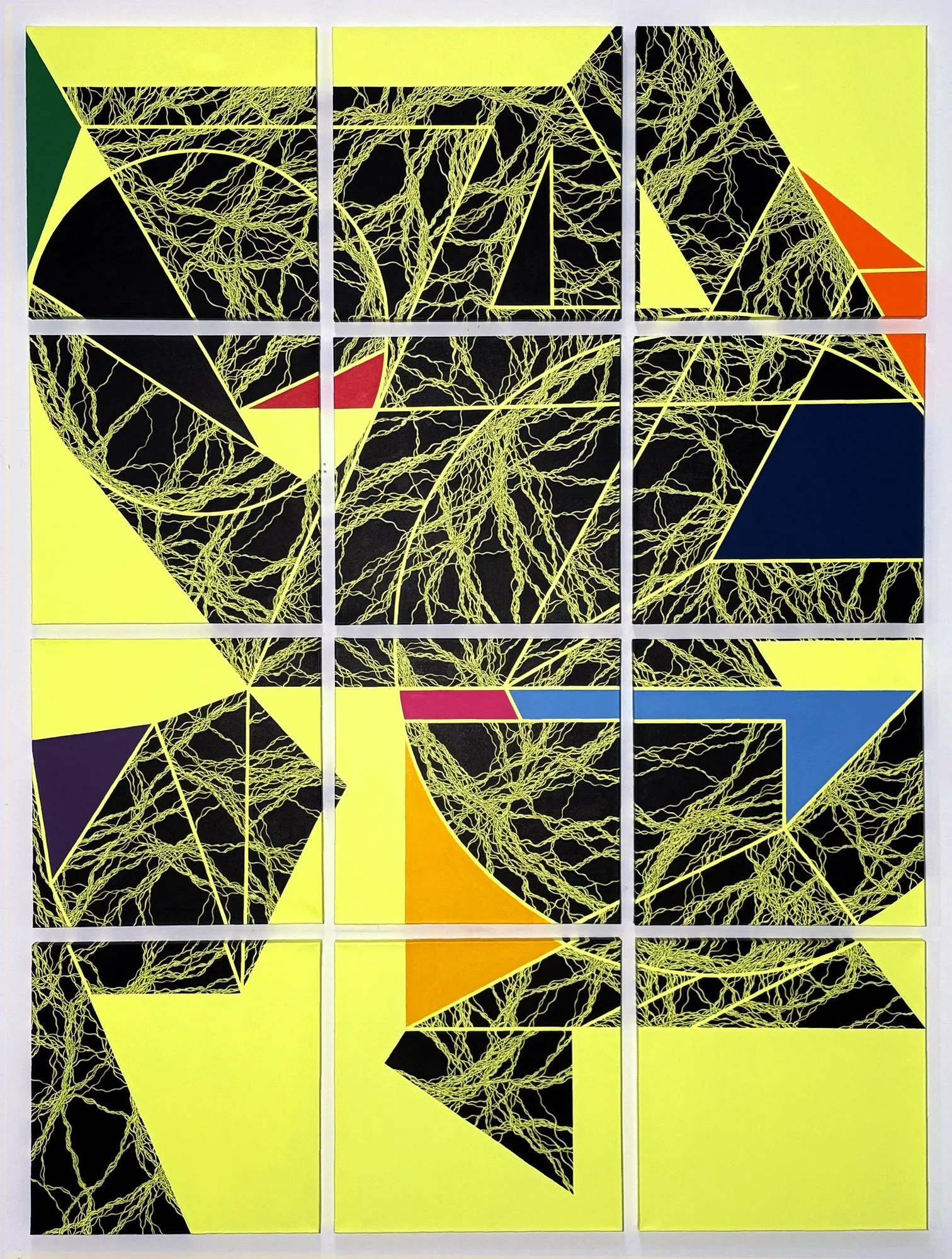
Transformer, 100" x 75", Acrylic on Canvas, 2025
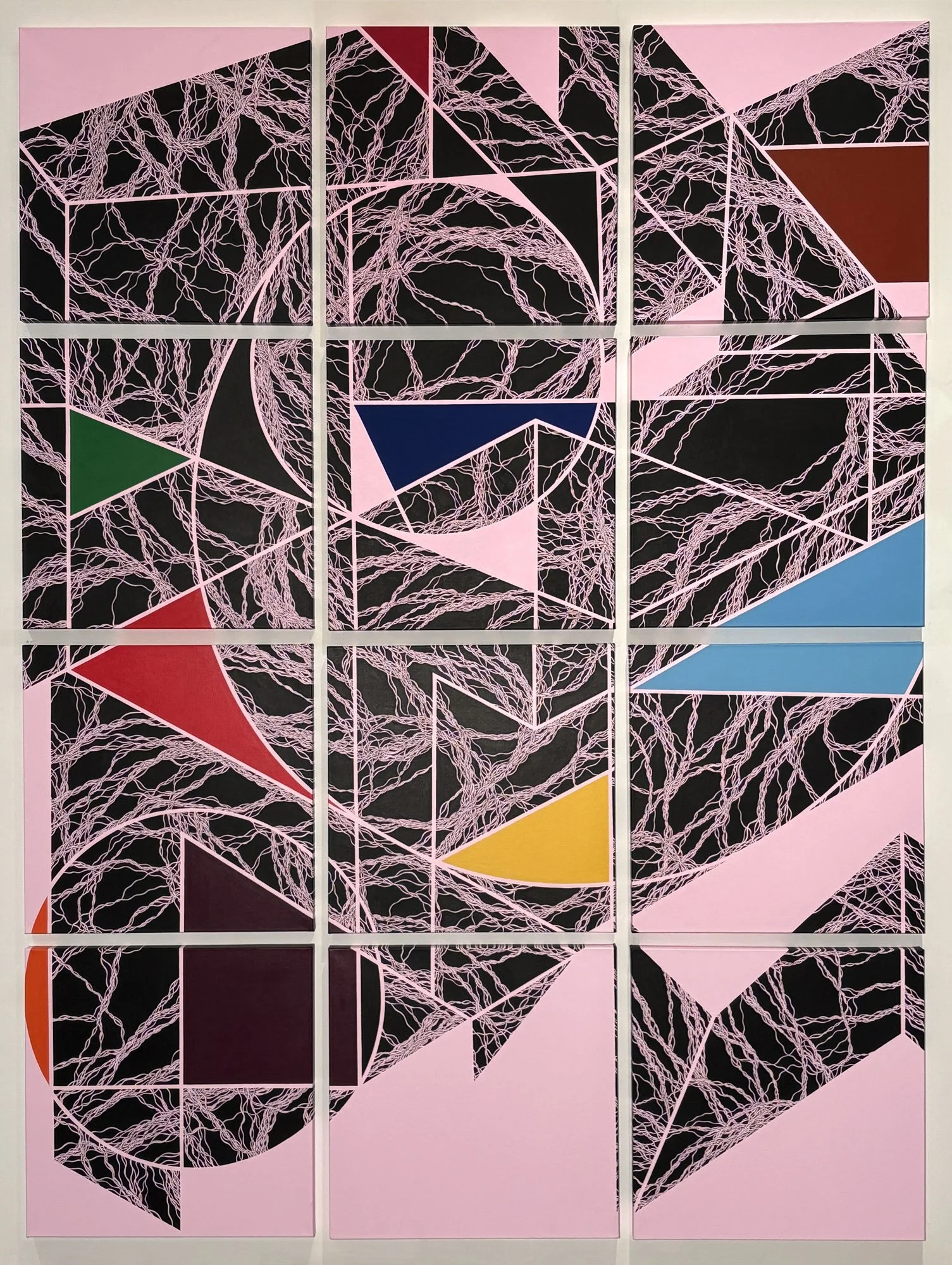
Owen's Corners, 100" x 75", Acrylic on Canvas, 2024
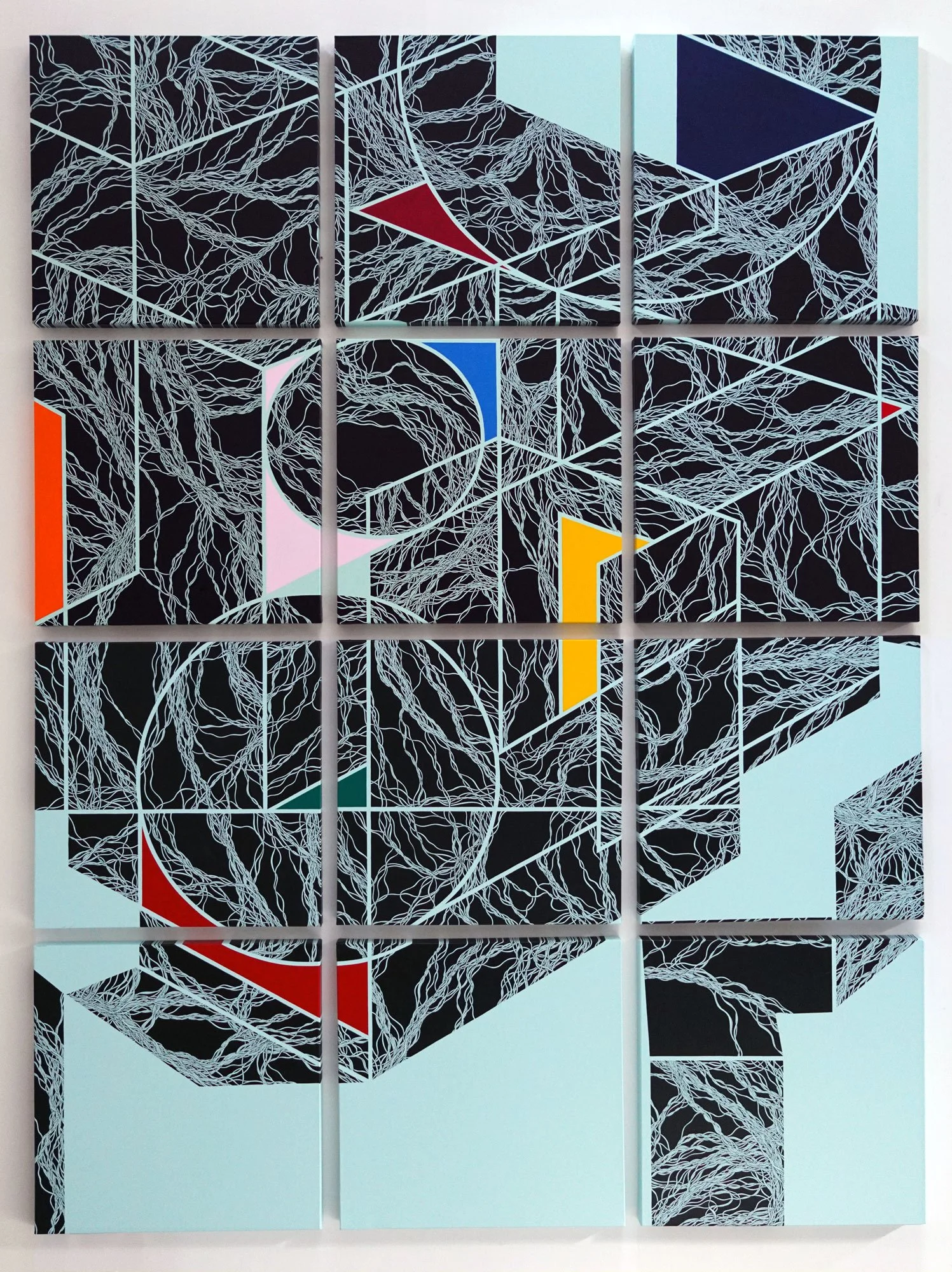
Paint Me a River, 83" x 62", Acrylic on Canvas, 2024
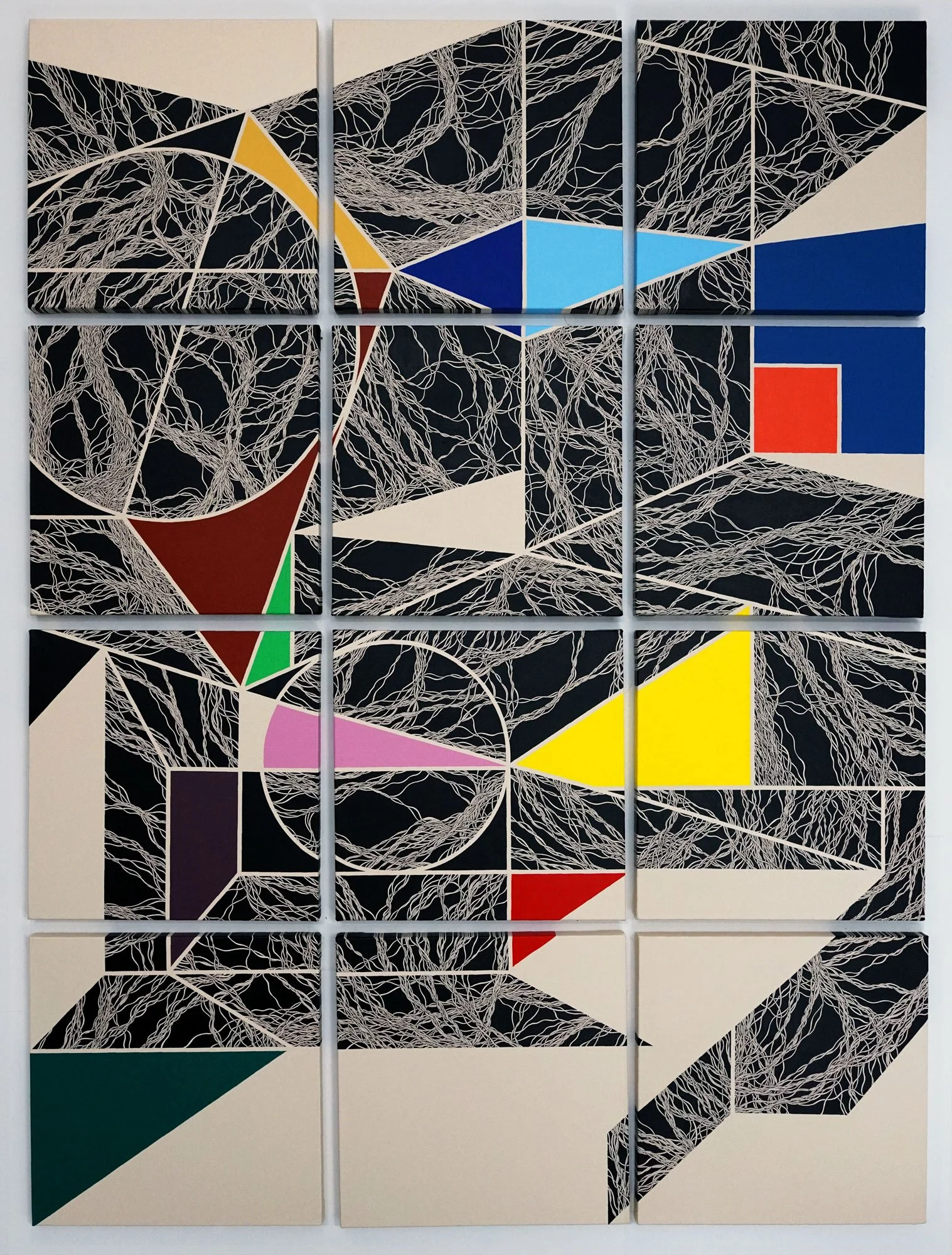
To Map a Meander, 83" x 62", Acrylic on Canvas, 2024
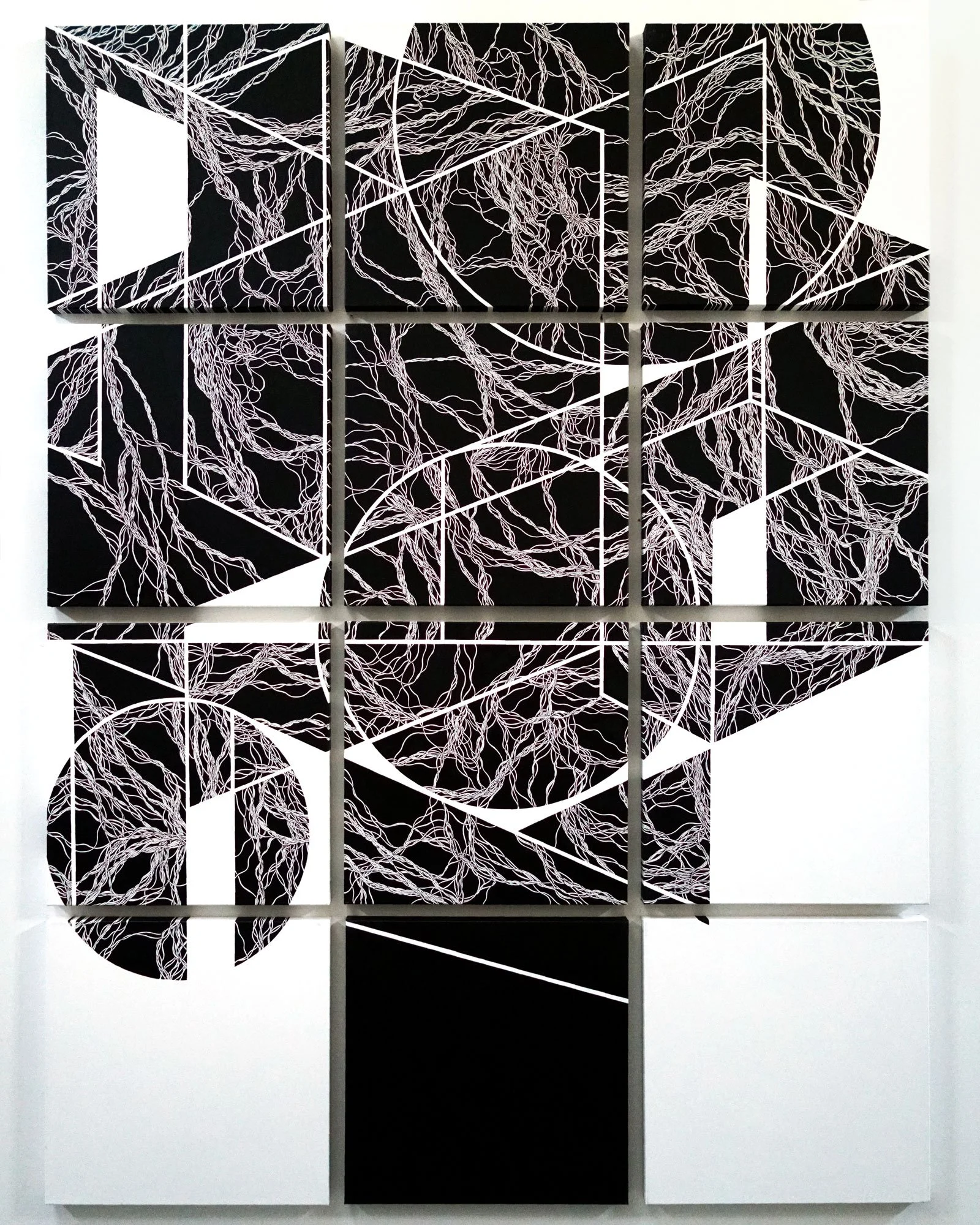
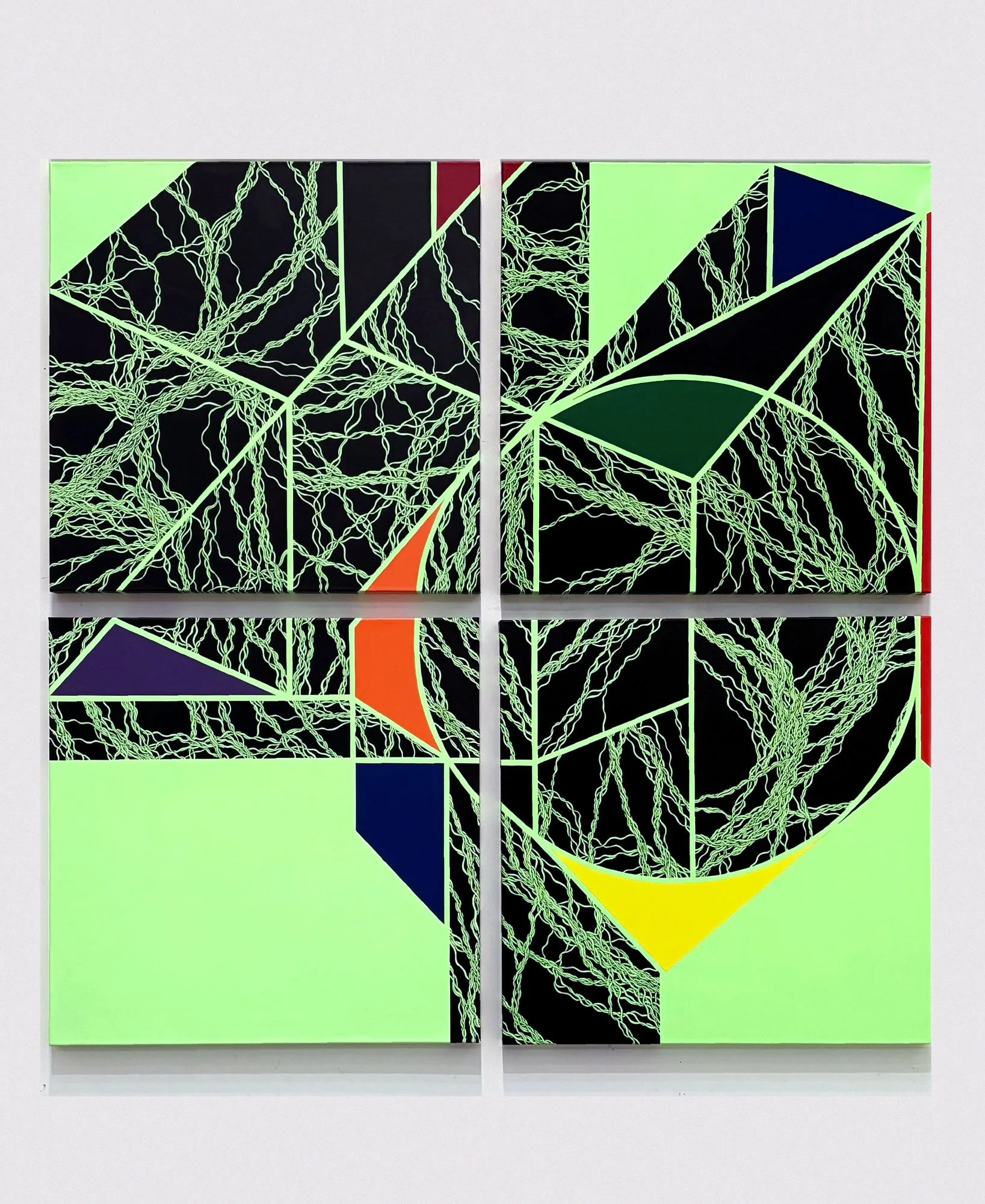
8 Ball, 49 1/2" x 49 1/2", Acrylic on Canvas, 2025
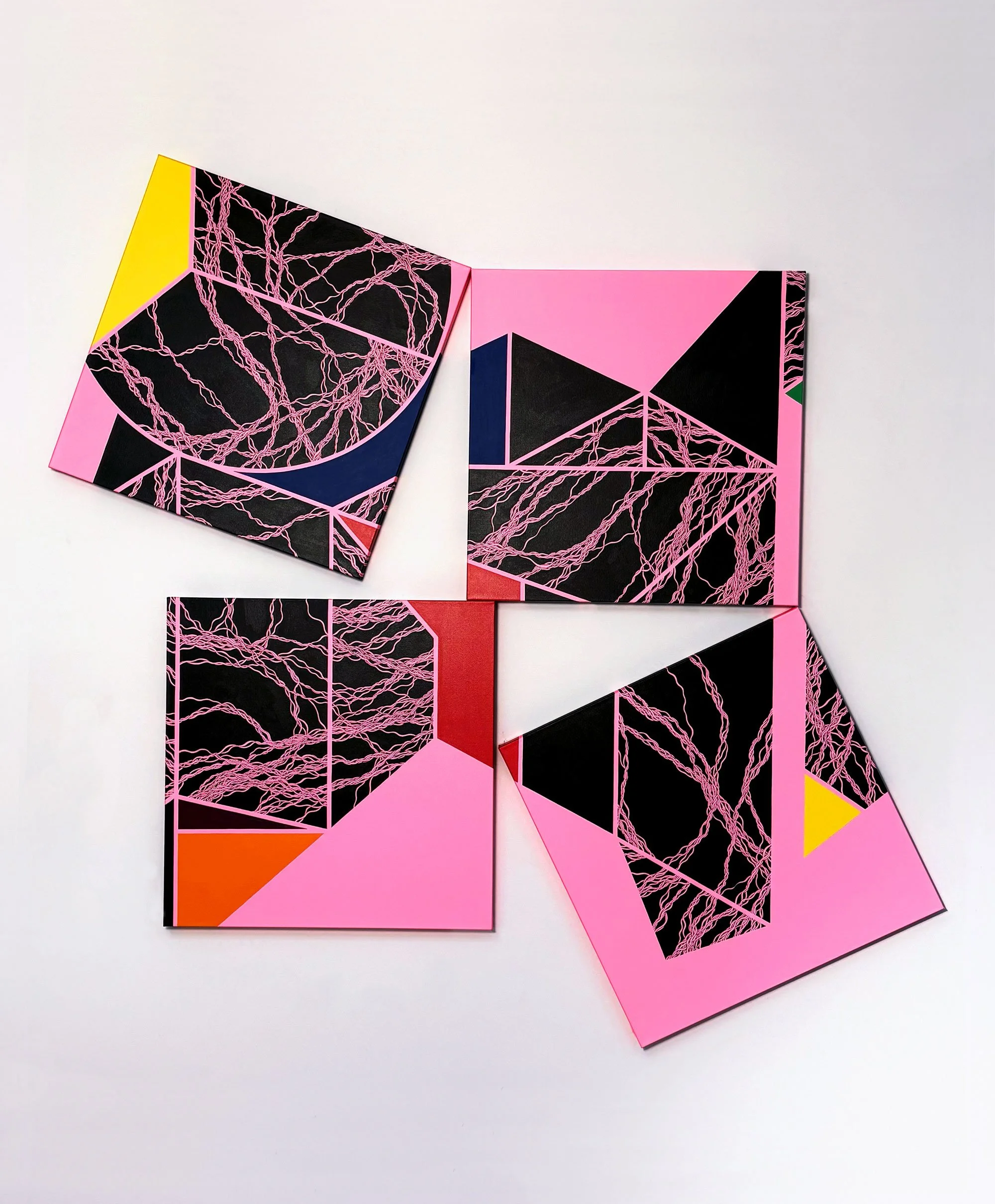
Lies Between, 66" x 66", Acrylic on Canvas, 2025
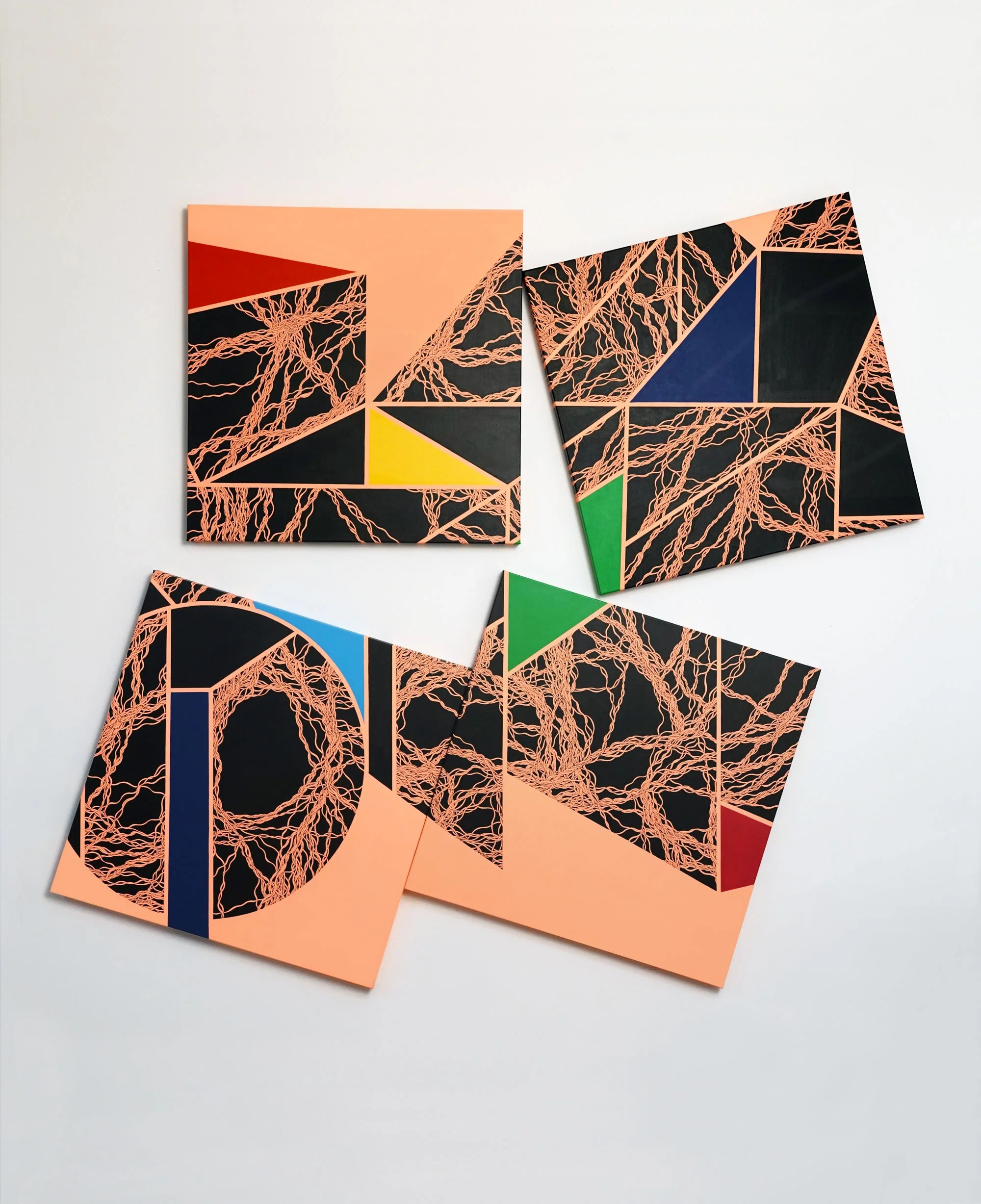
Unpacking the Tangerine, 60" x 62", Acrylic on Canvas, 2025
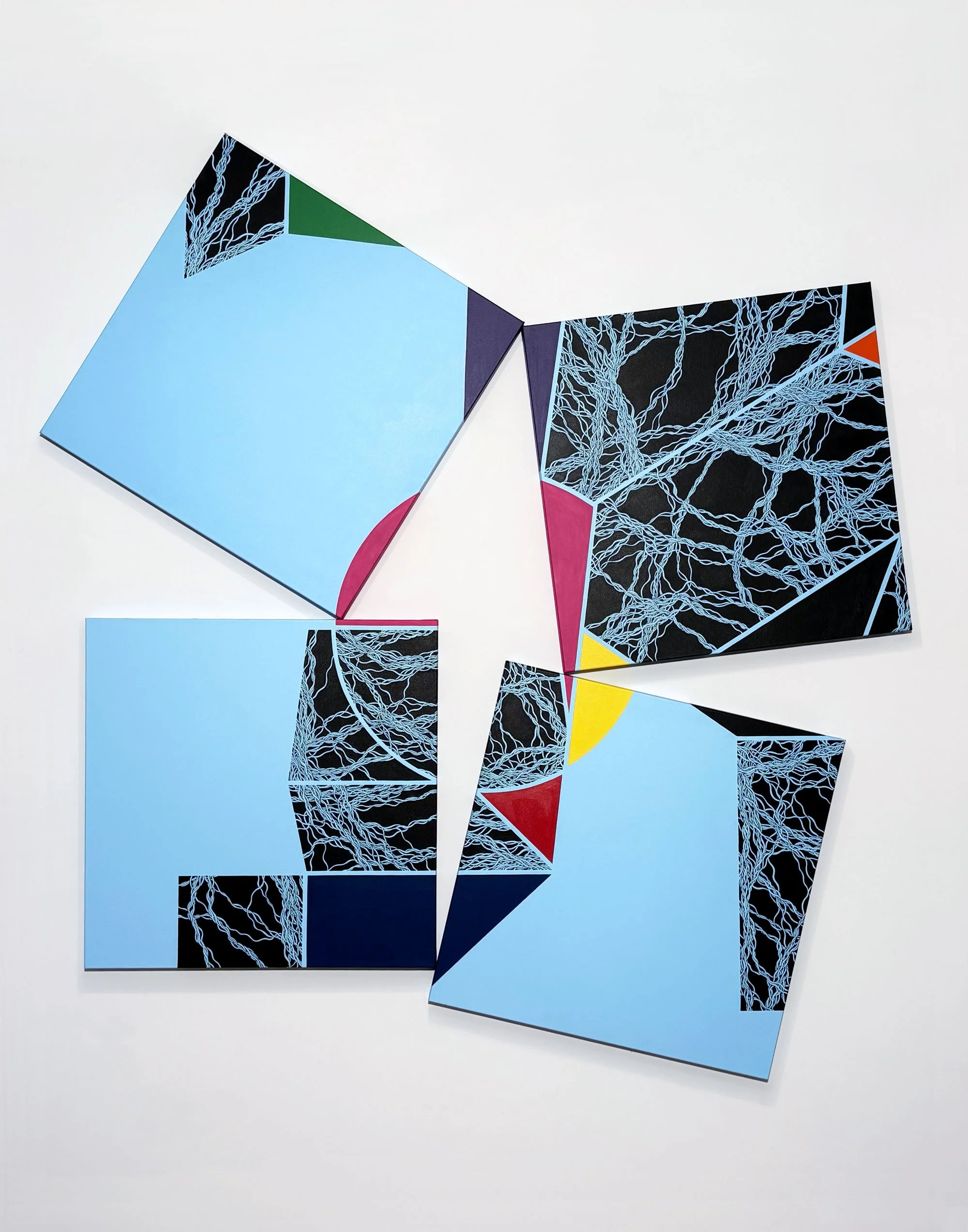
Nothing Breaks, 64" x 60", Acrylic on Canvas, 2025
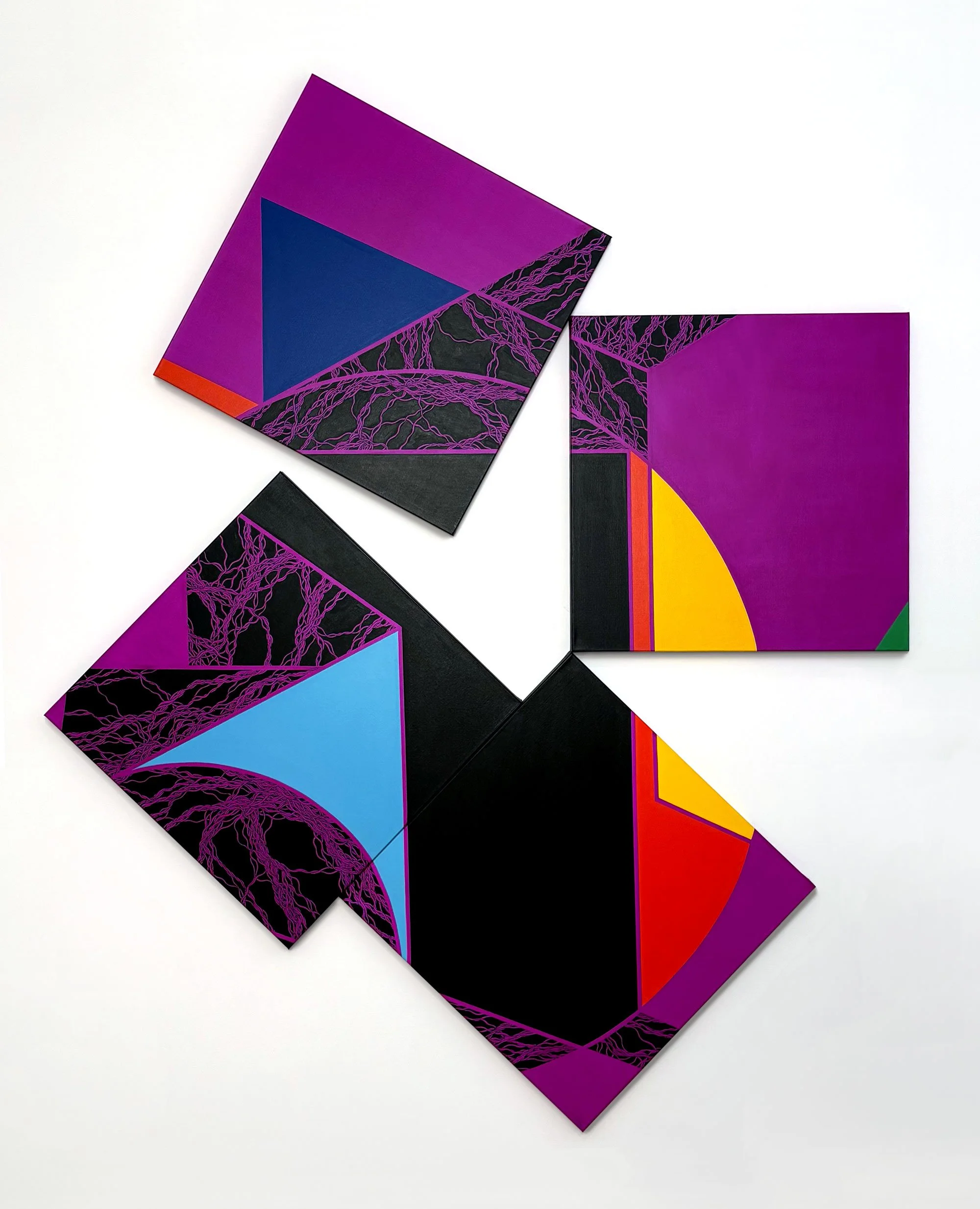
Night & Day, 67" x 62", Acrylic on Canvas, 2025
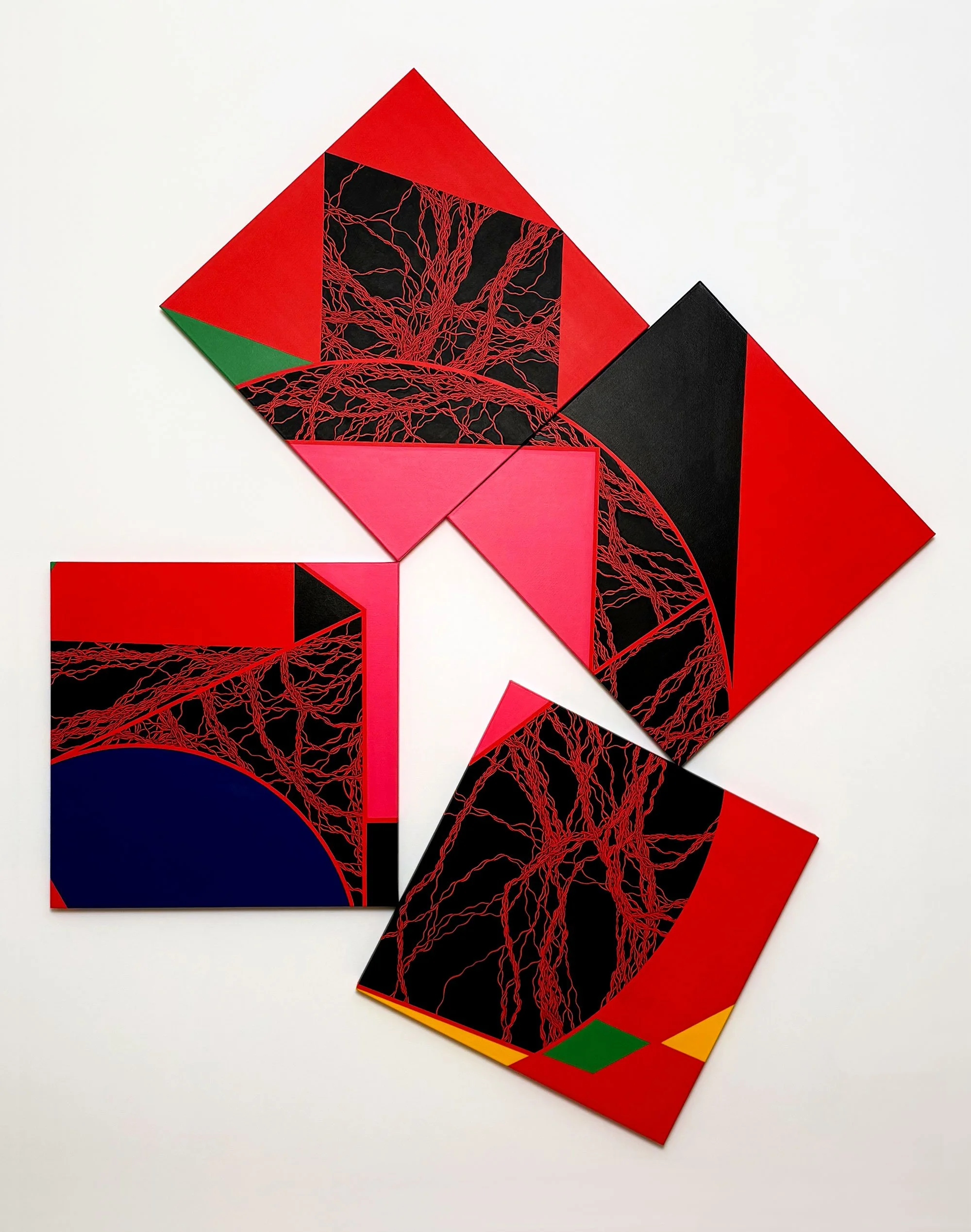
Day & Night, 76" x 61", Acrylic on Canvas, 2025
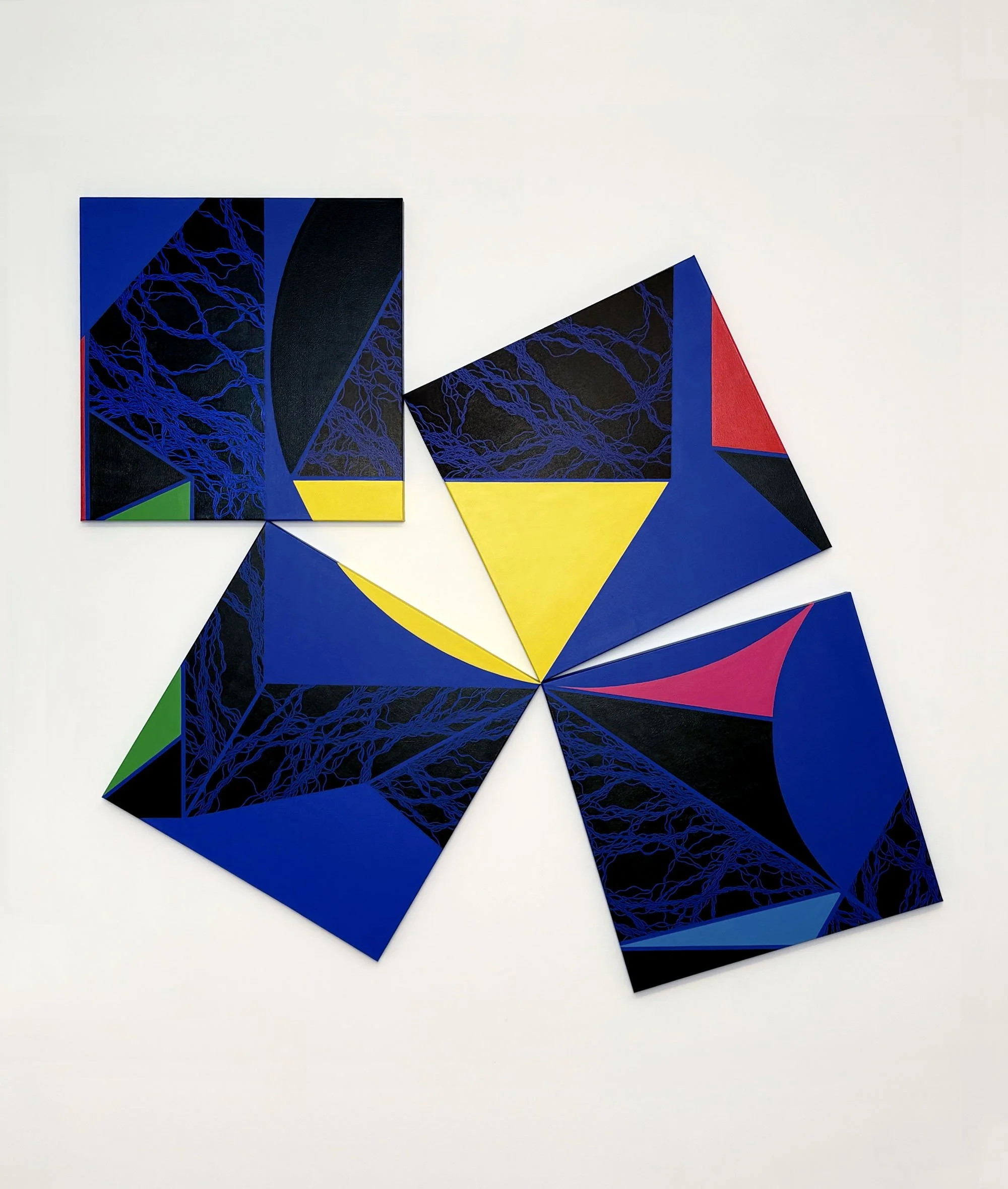
After Hours, 65" x 63", Acrylic on Canvas, 2025
Either Here or There
In my Either Here or There series, I’m exploring what happens when eyes start to project something one way and then suddenly shift to see it another. Because drawings are illusions, I can play with how perception toggles back and forth between what comes forward and what falls away.
I have always considered the human condition as uncertain. We should spend less time being sure of ourselves and more time discovering those untrodden paths that make life interesting. Let’s stop defining holes by everything they are not.
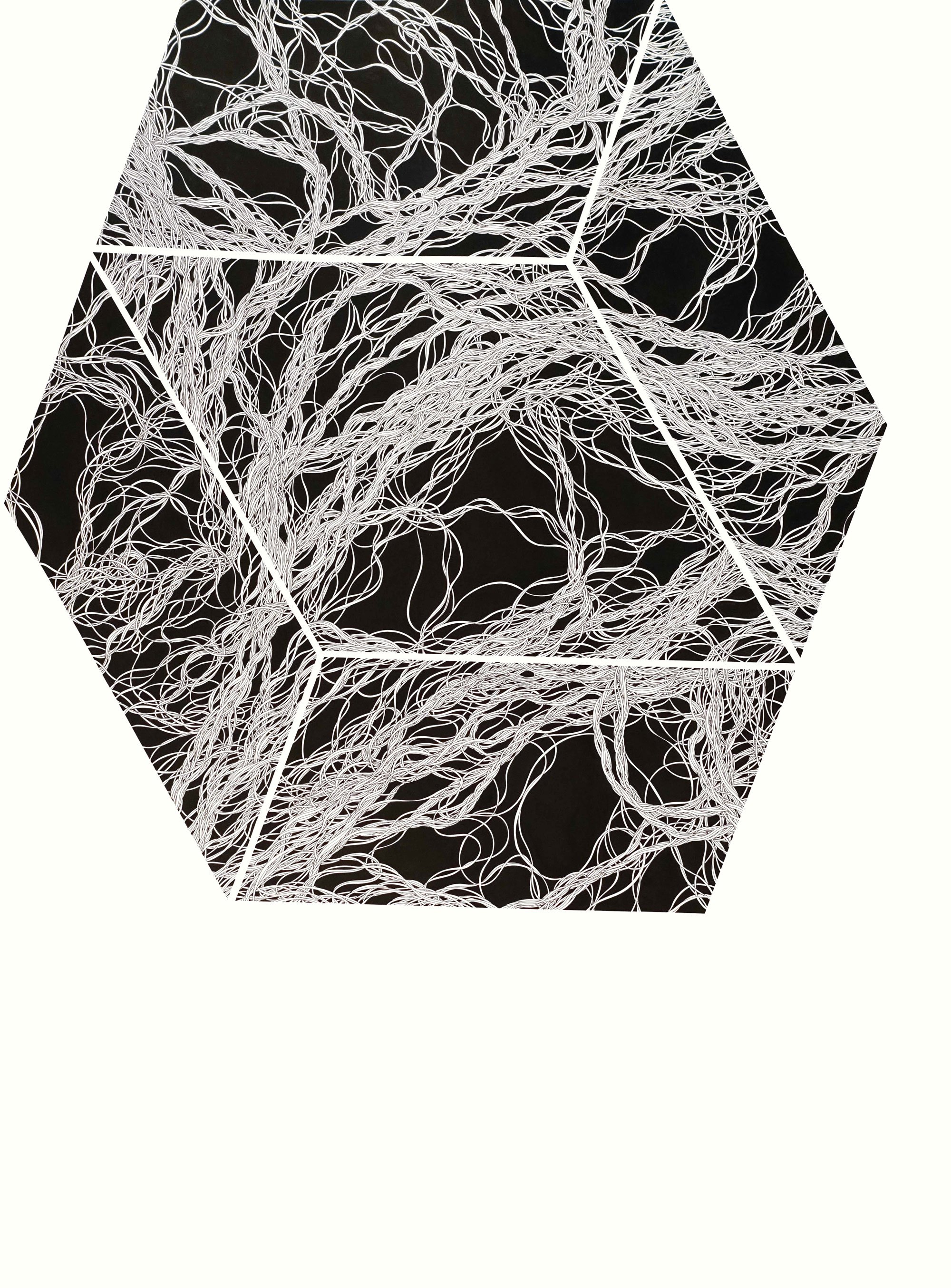
Chatterbox (5520), 40" x 30", Ink on Paper, 2022
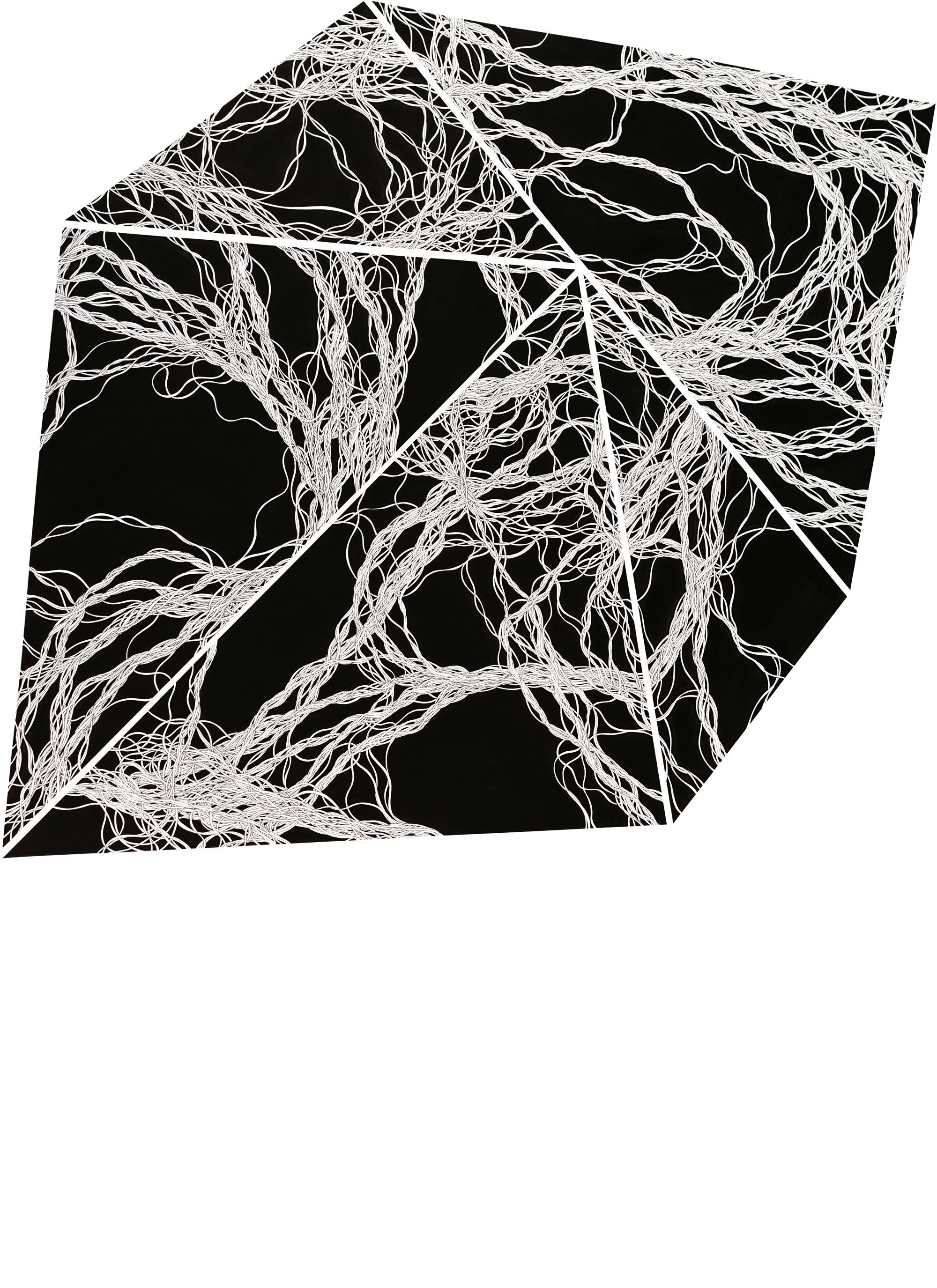
Fold no.4 (5190), 40" x 30", Ink on Paper, 2023
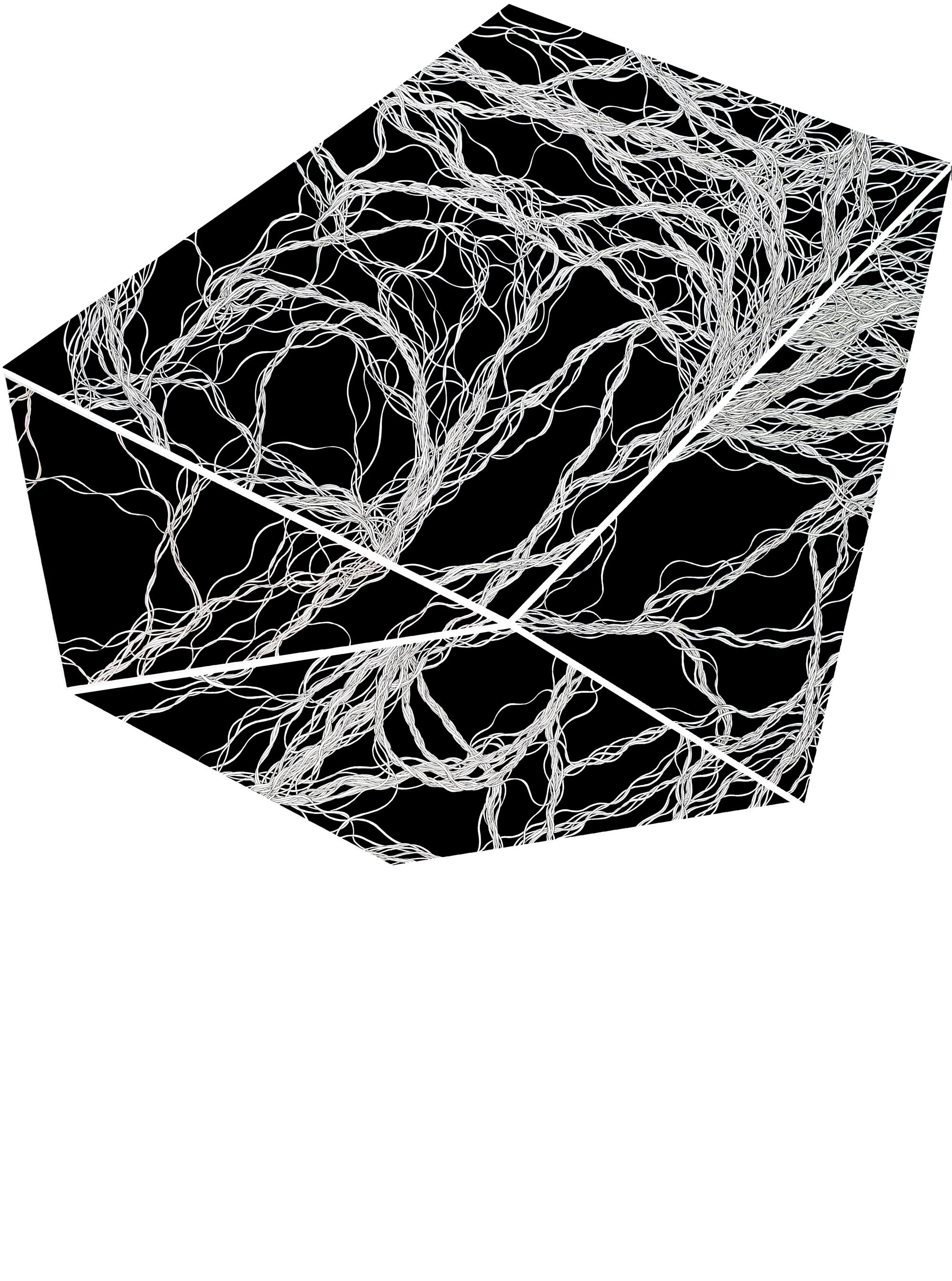
Point of Return (4770), 40" x 30", Ink on Paper, 2023
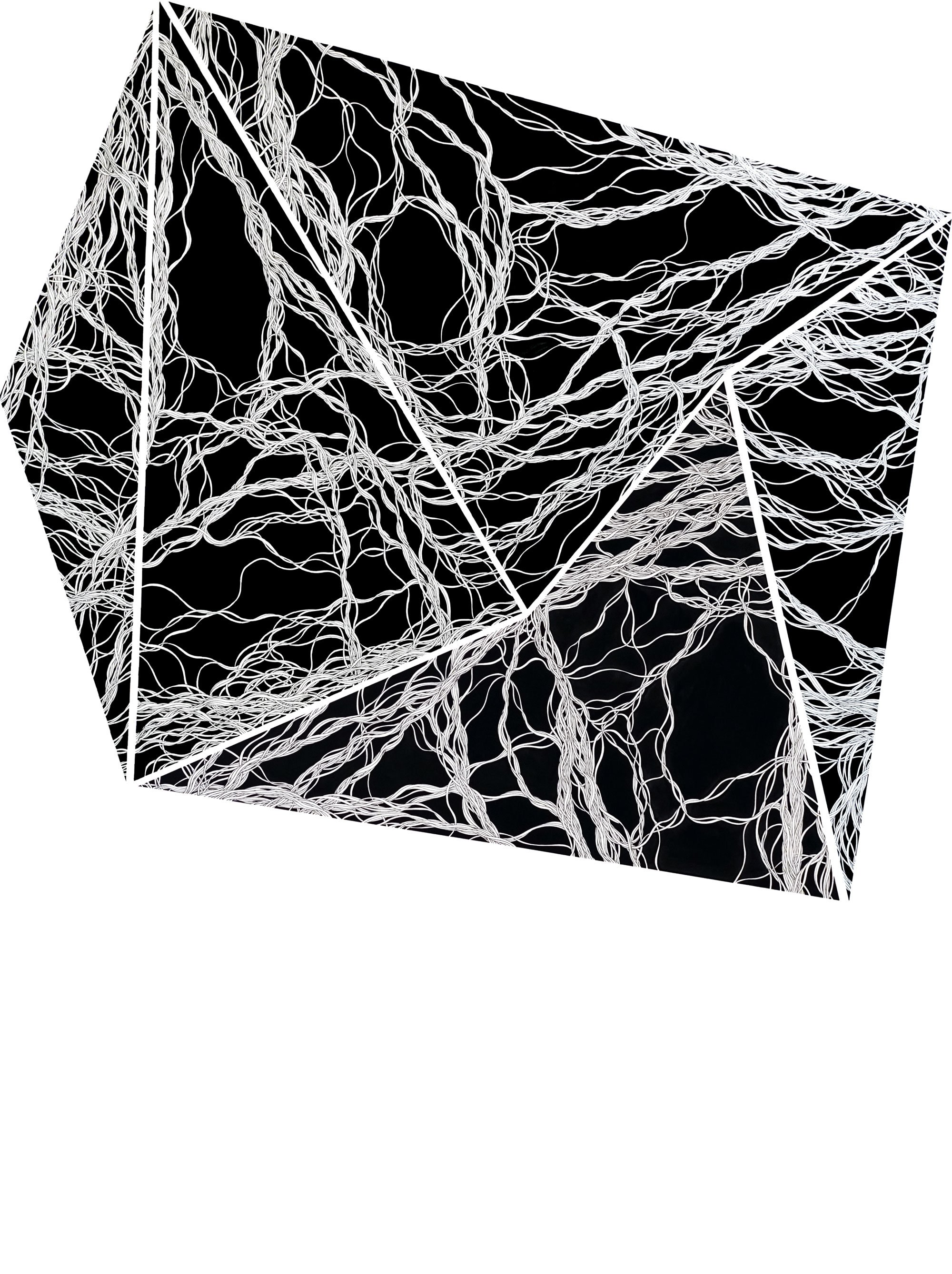
Rumple (5355), 40" x 30", Ink on Paper, 2023

The Accord (4905), 40" x 30", Ink on Paper, 2023
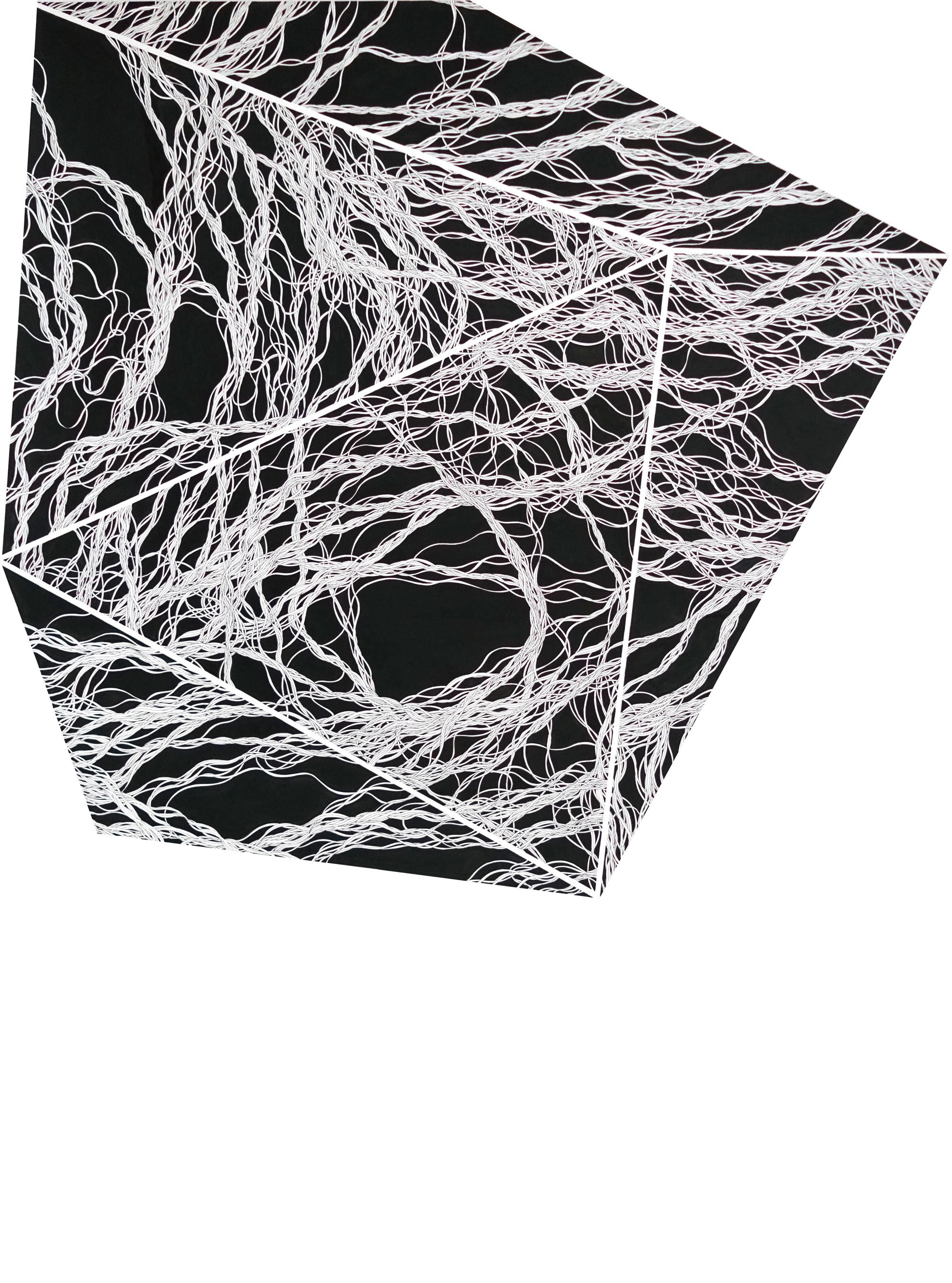
Folded Sea (5250), 40" x 30", Ink on Paper, 2023

Guy-Lines (5190), 40" x 30", Ink on Paper, 2023
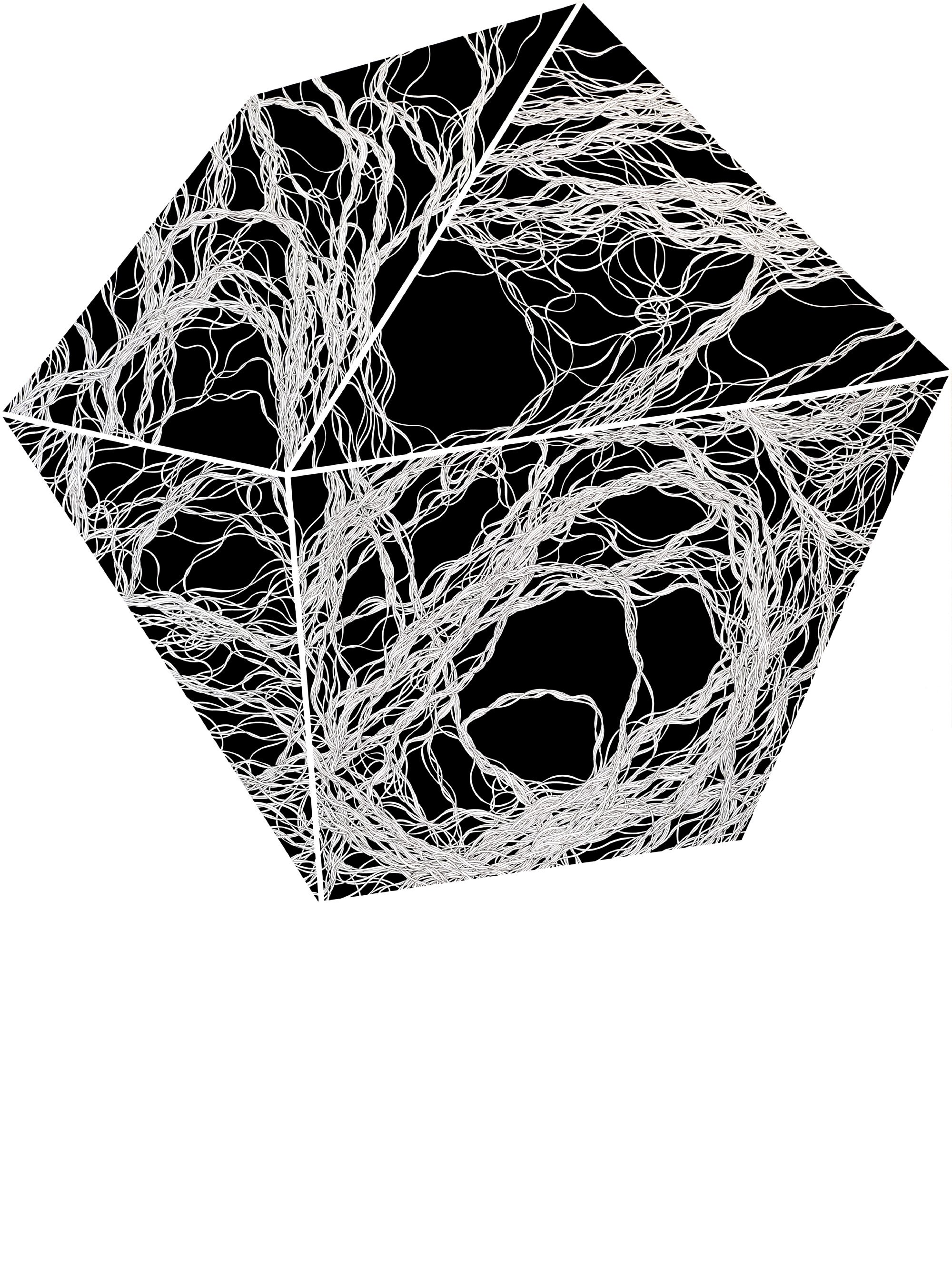
Flint (5085), 40" x 30", Ink on Paper, 2023
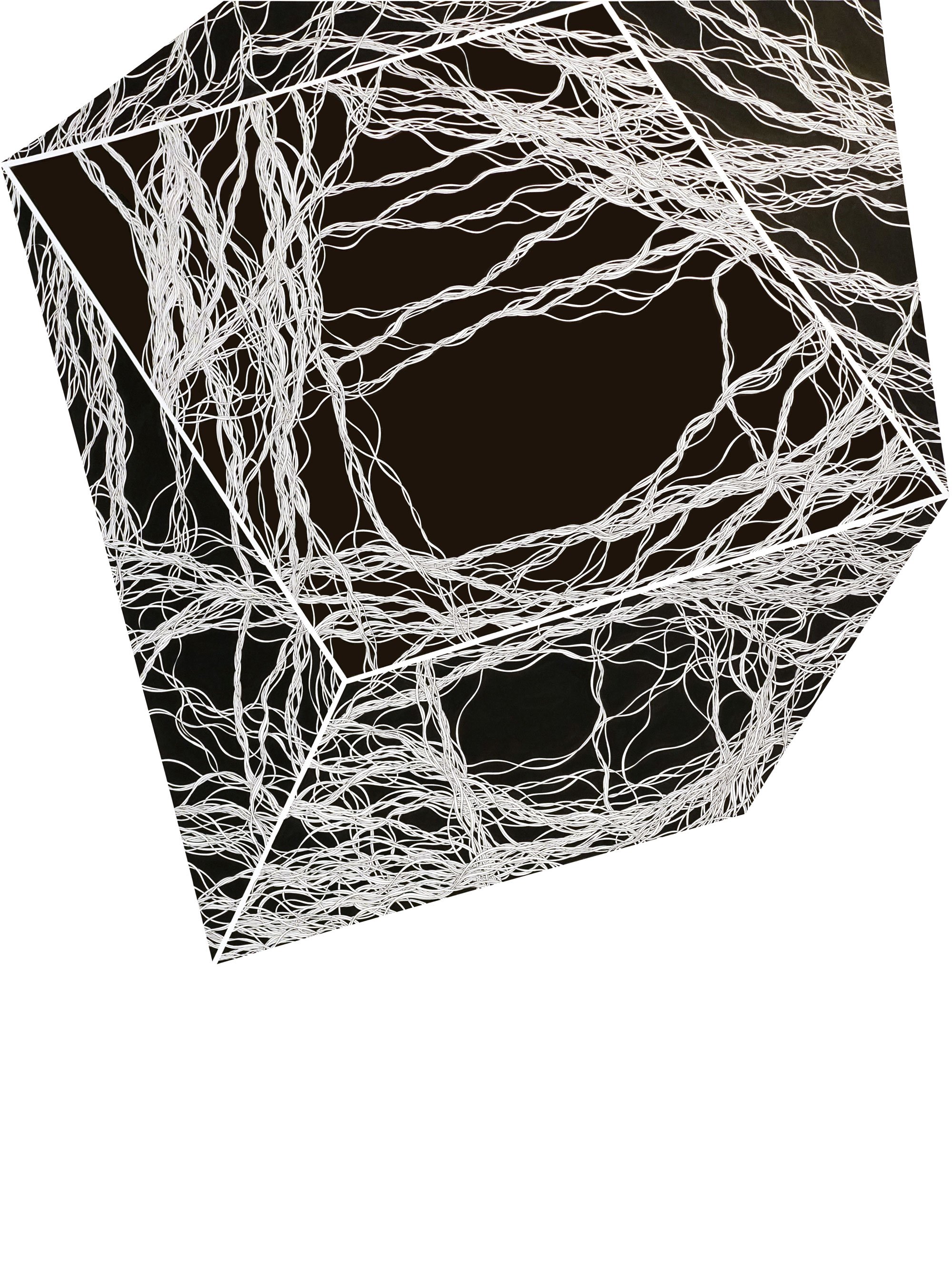
Unfolded One (5330), 40" x 30", Ink on Paper, 2023
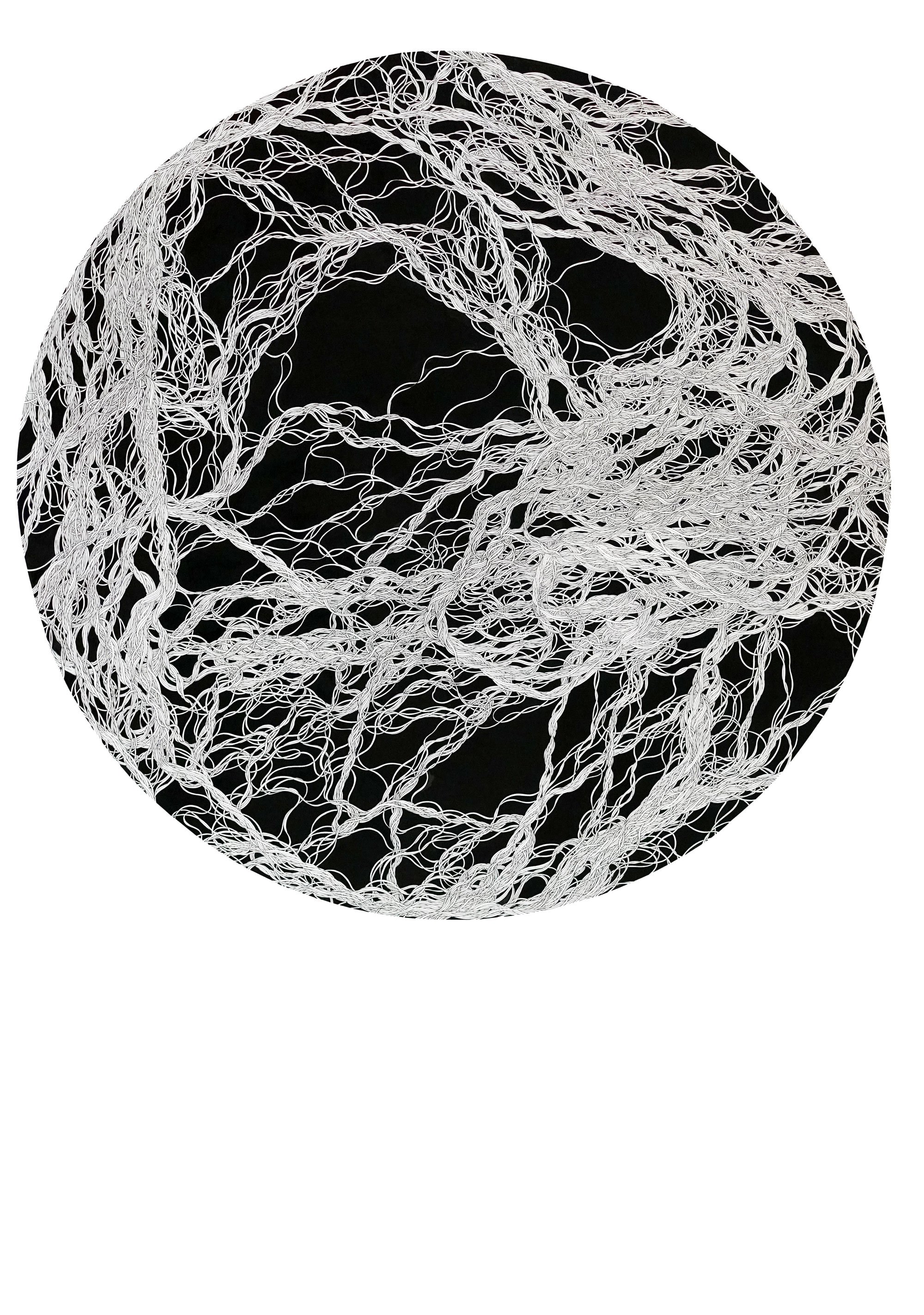
Spheric-hole (5298), 44" x 31-1/2", Ink on Paper, 2022

Pyramid-hole (4320), 40" x 30", Ink on Paper, 2022
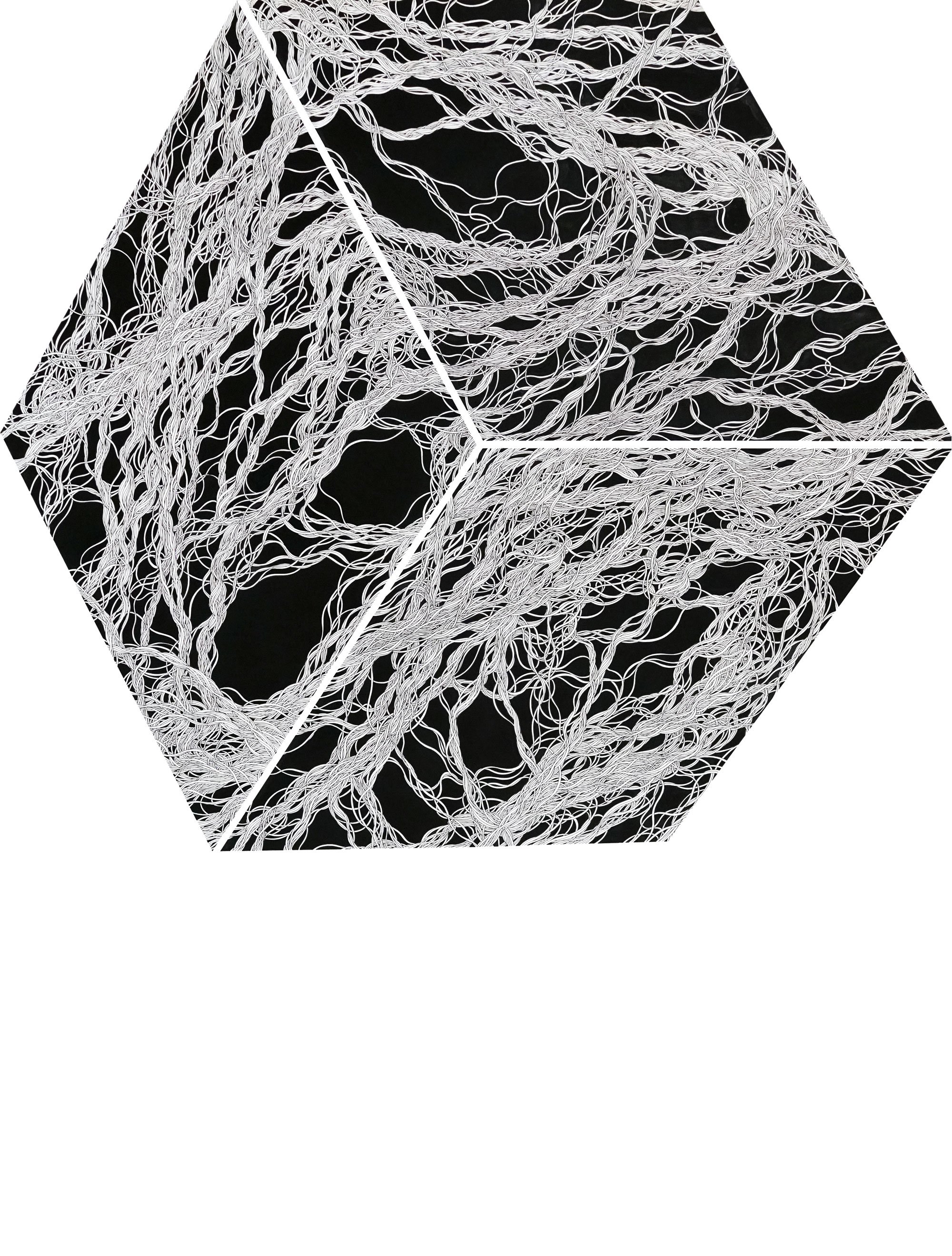
Cubic-hole (5490), 40" x 30", Ink on Paper, 2022